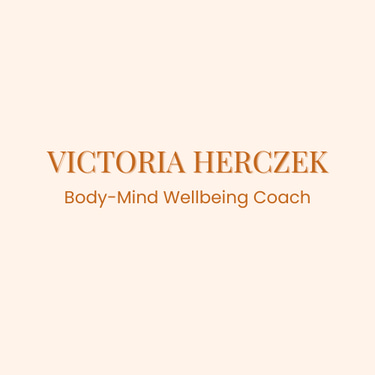Understanding the Difference Between Health and Holistic Wellbeing
Victoria Herczek
8/15/20243 min read


The Difference Between Health and Holistic Wellbeing.
Holistic wellbeing includes not only physical health but also mental fitness and spiritual balance.
In today's world, we increasingly focus on health and overall wellbeing. However, do we realize that these two concepts, though often used interchangeably, are not the same?
Health and holistic wellbeing share much in common, but there are fundamental differences between them that are worth understanding. Below, I present key points to help better comprehend these differences.
Holistic wellbeing is a concept that encompasses a comprehensive approach to a person. It acknowledges that a human being consists of many dimensions—physical, emotional, intellectual, spiritual, and social. Each of these dimensions plays a crucial role in creating a fulfilling and satisfying life. Physical health is only one element that constitutes holistic wellbeing.
To achieve complete wellbeing, we must take care of all aspects of our existence.
Health, as a fundamental human need, is essential for survival and functioning. It is a state where our body operates optimally, enabling us to perform daily activities. However, health is more than just the absence of disease; it is a state of dynamic balance, where our body can respond to changing environmental and internal conditions. Physical health does not exist in isolation from mental state. Our well-being, stress levels, emotions—all of these affect our health. Health is not something that can be possessed in isolation; it is closely tied to our mental state. Negative emotions, stress, and anxiety can lead to a deterioration of health, demonstrating that health and mental well-being are inextricably linked.
Health is the norm, which is the natural state of the organism. Illness, on the other hand, is a deviation from this norm.
From a medical perspective, health is defined as the absence of disease, a situation in which the body functions predictably and correctly. Disease is a state where this natural order is disrupted, requiring intervention to restore balance. Physical health is the ability to carry out our daily tasks without limitations. It is the ability to move, act, and achieve goals without experiencing pain or discomfort. When we are healthy, our body does not pose an obstacle to achieving our goals, allowing us to fully participate in life. Vigor can be described as a state in which all basic functions of our body operate harmoniously, allowing us to perform everyday activities without limitations. Freedom of movement, absence of pain, and the ability to take on the challenges of daily life are key indicators of good health.
Holistic wellbeing includes not only physical health but also mental fitness and spiritual balance.
It is a meta sphere that permeates all areas of life, integrating them into a harmonious whole. The holistic approach assumes that to achieve the fullness of life, we must care for all aspects of our existence, not just physical health. Our daily choices have a direct impact on our health. Lifestyle, diet, level of physical activity, and how we cope with stress all influence our physical and mental health. For this reason, health is not a static state but a dynamic process that requires continuous self-care and conscious decision-making every day.
Comprehensive wellbeing is more than just taking care of health; it is also about the right approach to life and existence
It is the way we relate to the world, to ourselves, and to others. The right approach to existential conditions—acceptance, understanding, and integration of different aspects of our life—is key to achieving true wellbeing. Holistic wellbeing influences all spheres of our life, including cognitive, emotional, and motivational areas. It allows us to better understand ourselves, build lasting relationships, and effectively cope with daily challenges. Taking care of holistic wellbeing helps in organizing both inner and social life, translating into a fuller and more satisfying existence. While health is a necessary foundation for our daily functioning, holistic wellbeing is a more complex concept that encompasses all aspects of our life. Health is the foundation, but it is the holistic approach to wellbeing that allows us to achieve the fullness of life, where each part of our being is in harmony with the others. Therefore, it is worth striving not only to take care of health but also to pursue holistic wellbeing that permeates all areas of our existence.
Blessings,
Victoria
